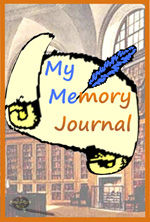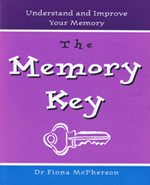Why your knowledge of normal aging memory matters
I’ve discussed on a number of occasions the effects that stereotypes can have on our cognitive performance. Women, when subtly reminded that females are supposedly worse at math, do more poorly on math tests; African-Americans, when subtly reminded of racial stereotypes, perform more poorly on academic tests. And beliefs about the effect of aging similarly affect memory and cognition in older adults.
Your beliefs matter. In the same way that those who believe that intelligence is fixed tend to disengage when something is challenging, while those who believe that intelligence is malleable keep working, believing that more time and effort will yield better results (see Fluency heuristic is not everyone’s rule and Regulating your study time and effort for more on this), older adults who believe that declining faculties are an inevitable consequence of aging are less inclined to make efforts to counter any decline.
Moreover, if you believe that your memory will get progressively and noticeably worse as you get older, then you will tend to pay more attention to, and give more weight to, your memory failures. This will reinforce your beliefs, and so on, feeding back on itself. Bear in mind that we all, at every age, suffer memory failures! Forgetting things is not in itself a sign of age-related decline.
It’s important, therefore, that people have a realistic idea of what to expect in ‘normal’ aging. In the course of writing a short book on this topic (it will be out, I hope, early in the new year), I came across the Knowledge of Memory Aging Questionnaire (KMAQ). Research using this questionnaire has revealed the interesting finding that people know more about pathological memory aging than they do about normal memory aging.
You may find it interesting to know some of the questions, and how likely people are to get them right. So, let's look at one of these studies, involving 150 people, divided evenly into three age-groups (40-59; 60-79; 80+).
The oldest-old scored significantly more poorly than the other two groups, although the differences weren’t great (65% correct vs 70% and 69%). There was no overall difference between genders, but males were significantly more likely to answer “Don’t know” to questions about pathological memory.
But if we focus only on the subset of four questions that relate to stereotypes about normal aging in memory, there is much greater difference between the age groups (78% correct, 69%, 52%, for middle age, young-old, and oldest-old, respectively). These are the four questions (the answers are all “false”):
- Regardless of how memory is tested, younger adults will remember far more material than older adults.
- If an older adult is unable to recall a specific fact (e.g., remembering a person’s name), then providing a cue to prompt or jog the memory is unlikely to help.
- When older people are trying to memorize new information, the way they study it does not affect how much they will remember later.
- Memory training programs are not helpful for older persons, because the memory problems that occur in old age cannot be improved by educational methods.
Only one of these questions was reliably answered correctly, and that only by the middle-age adults (If an older adult is unable to recall a specific fact, then providing a cue to prompt or jog the memory is unlikely to help.)
Looking at the individual questions, it’s interesting to see that the different age-groups show different patterns of knowledge. Middle-age adults were most likely to answer the following questions correctly (between 45 and 42 of the 50 answered correctly):
- [Q18] Signs and symptoms of Alzheimer’s Disease show up gradually and become more noticeable to family members and close friends over time. (true)
- [Q17] Memory for how to do well-learned things, such as reading a map or riding a bike, does not change very much, if at all, in later adulthood. (true)
- [Q1] “A picture is worth a thousand words” in that it is easier for both younger and older people to remember pictures than to remember words. (true)
- If an older adult is unable to recall a specific fact (e.g., remembering a person’s name), then providing a cue to prompt or jog the memory is unlikely to help. (false)
Young-old adults also scored highly on Q17 and Q1, but their other top-scorers were:
- [Q21] If an older person has gone into another room and cannot remember what he or she had intended to do there, going back to the place where the thought first come to mind will often help one recall what he or she had intended to do. (true)
- Confusion and memory lapses in older people can sometimes be due to physical conditions that doctors can treat so that these symptoms go away over time. (true)
The oldest-old agreed that Q21 and Q18 were easy ones (indeed, 48 and 47 got these questions right), but after that, their next top-scorer was:
- Lifelong alcoholism may result in severe memory problems in old age. (true)
Although average education levels were similar for the three age-groups, there was greater variability within the oldest-old — 9 didn’t finish high school, but 20 had tertiary degrees. In comparison, only one middle-aged and one young-old adult didn’t finish high school. The finding that the oldest-old were more likely to answer according to stereotypes of aging memory may therefore reflect, at least in part, the lower education of some individuals.
But let’s go back to my earlier comment that those who believe poorer memory is inevitable with age give more weight to their failures while being less inclined to deal with them. This study did indeed find that changes in memory test performance over five years were correlated with subjective memory complaints, but not with use of external aids. That is, people who were forgetting more, and noticing that they were forgetting more, did not engage in greater use of strategies that would help them remember.
Something to think about!
Hawley, K. S., Cherry K. E., Su J. L., Chiu Y. - W., & Jazwinski M. S. (2006). Knowledge of memory aging in adulthood. International Journal of Aging & Human Development. 63(4), 317 - 334.

